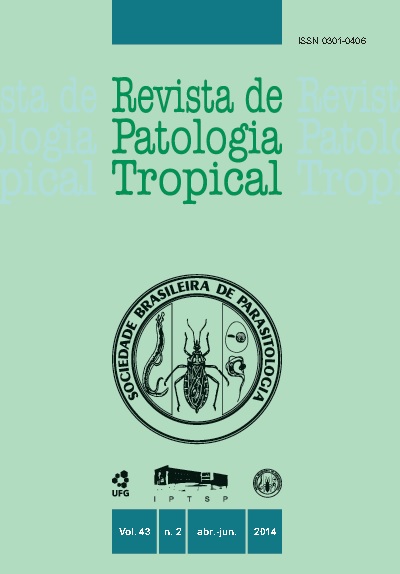NEUROSYPHILIS: A BRIEF REVIEW
DOI:
https://doi.org/10.5216/rpt.v43i2.31108Keywords:
Neurosyphilis, Treponema pallidum, progressive general paralysis, dementia.Abstract
Neurosyphilis (NS) designates all the adverse effects on the central nervous system (CNS) caused by Treponema pallidum. It occurs at the third stage of syphilis in about 10% of patients with untreated primary infection. Despite a significant decrease in the incidence of neurosyphilis during the last three decades, the invasion of the human nervous system still takes place and the clinical presentation does not follow the traditional evolution of the pre-antibiotic era. At present, it is observed that NS may present clinical features very similar to those of other illnesses of the nervous system, and can be mistaken, even after years of follow-up, for neurological or psychiatric illnesses. In this work, we conducted an historical, epidemiological, conceptual, clinical and diagnostic review, with the purpose of expanding the knowledge and improving the understanding of this disease.Downloads
Downloads
Published
How to Cite
Issue
Section
License
The manuscript submission must be accompanied by a letter signed by all authors stating the full name and email address, confirming that the material has not been published or is under consideration for publication elsewhere, and agreeing to transfer copyright in all media and formats for Journal of Tropical Pathology. The authors will not be paid for published articles. They are solely responsible for the content of those articles, even if the Editor holds the right to adjust them to the norms of the journal.
The reviewers will not be paid for the peer review process.

